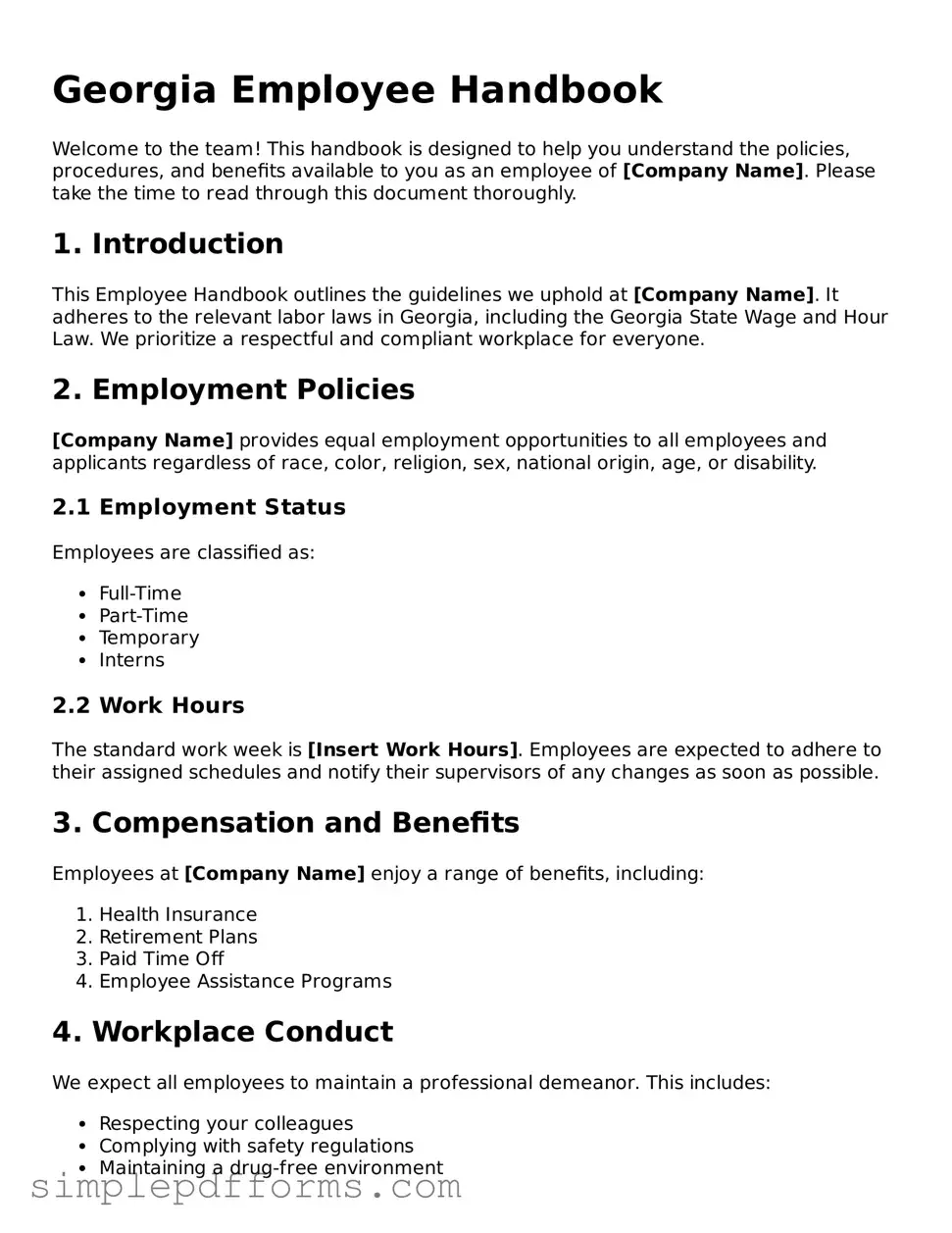Attorney-Verified Employee Handbook Document for Georgia State
The Georgia Employee Handbook form serves as a vital document that outlines the policies, procedures, and expectations for employees within a workplace. This handbook not only informs employees about their rights and responsibilities but also helps employers establish a clear framework for workplace conduct. Understanding the significance of this form can contribute to a more harmonious and productive work environment.
Open Employee Handbook Editor Now

Attorney-Verified Employee Handbook Document for Georgia State
Open Employee Handbook Editor Now

Open Employee Handbook Editor Now
or
Get Employee Handbook PDF Form
Your form is waiting for completion
Complete Employee Handbook online in minutes with ease.